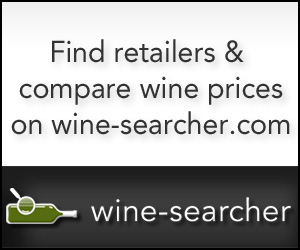http://www.cawineclub.com/ In This Issue
• Wine, health and political correctness
• Administrivia
In an article on New Year's Eve, The New York Times broke surprising new ground in media coverage of alcohol and health.
It's not that reporter Abigail Zuger's report, "The Case for Drinking," unveiled anything really new in this much-covered story. It stayed in familiar territory in its summary of the growing body of evidence that people who consume wine and other alcoholic beverages in moderation tend to be healthier and live longer than either people who drink too much or, believe it or not, than those who don't drink alcoholic beverages at all.
But I believe Zuger's report may be the first major article in mainstream, general news media (at least in the U.S.) that directly addresses the public-health community's enduring taboo against simply coming out and saying, "wine in moderation may be good for you."
"Alcohol has become the sharpest double-edged sword in medicine," she wrote, adding that some experts consider a "drink or two a day of wine, beer or liquor ... often the single best nonprescription way to prevent heart attacks - better than a low-fat diet or weight loss, better even than vigorous exercise. Moderate drinking can help prevent strokes, amputated limbs and dementia."
But the health risks associated with heavy drinking in particular, she goes on, can be so catastrophic that policy makers have been reluctant to endorse even moderate drinking. (Scientists who study alcohol-and-health issues typically define "moderate" as one or two "servings" - 5 ounces of table wine, 12 ounces of beer or 1 ounce of liquor - per day.)
Quoting physicians and researchers, Zuger points out that "The cardiac benefits of low-dose alcohol are evident in study after study. All over the world, moderate drinkers have healthier hearts than teetotalers, with fewer heart attacks from fatty plaque clogging the heart's arteries and blocking blood flow. ... In countries like the United States where heart disease is a major cause of death, this translates into a survival advantage: moderate drinkers live considerably longer on average than nondrinkers."
Yet the implications of this conclusion are so controversial that, in 1972, the U.S. National Heart and Lung Institute actually covered up the results of the Framingham Study, one of the earliest reports on alcohol's heart-protective benefits.
Quoting a 1996 memoir by Dr. Carl Sentzer, one of the Framingham authors, Zuger reports that this federal-government agency declined to publish the study, objecting that "an article which openly invites the encouragement of undertaking drinking with the implication of preventing coronary heart disease would be scientifically misleading and socially undesirable in view of the major health problem of alcoholism that already exists in the country."
Attitudes have changed since 1972, but only gradually. Zuger wrote that the American Heart Association, and many other policy organizations, now suggest that people who drink moderately needn't stop, but they continue to advise against "teetotalers" taking up drinking for health reasons alone.
Although Zuger's story didn't mention it, the U.S. Department of Agriculture, in its "Food Pyramid" guide to diet and health, now permits alcohol, albeit rather negatively, advising: "If you drink alcoholic beverages, do so in moderation. Alcoholic beverages supply calories, but little or no nutrients. Drinking alcohol is also the cause of many health problems and accidents and can lead to addiction."
Authorities may finally be coming around to the conclusion that the best policy is simply to make information available on all sides of the issue, Zuger said, then leaving it up to doctors and their patients to make informed decisions that suit their own situations. As Boston University medical Prof. Curtis Ellison said, "The key is, how best do you present balanced information to the public? If you withhold balanced information, that's doing harm."
None of this should come as news to WineLoversPage.com readers, where I've been dispensing the following standard advice as a "Frequently Asked Question" for years: "It's probably best to discuss this with your family doctor, to get insight into how wine drinking fits into your personal health and lifestyle. This is particularly true if you have not been consuming alcoholic beverages at all before. If you do drink moderately now, remember that the wine should replace other alcoholic beverages, not be taken in addition to them. Finally, it is better to develop a healthy lifestyle that includes good nutrition, exercise, and a moderate amount of wine, than to consider drinking wine only as a kind of medicine; it is not a 'magic bullet' that, by itself, will keep heart disease away."
You can read Zuger's complete article in The New York Times online (free registration required) at
http://www.nytimes.com/2002/12/31/health/31ALCO.html.
The article also appeared in The International Herald-Tribune, where it's available without registration at
http://www.iht.com/articles/81826.html.
To subscribe or unsubscribe from The 30 Second Wine Advisor, change your E-mail address, switch from weekly to daily distribution, or for any other administrative matters, click to http://www.wineloverspage.com/wineadvisor/admin.phtml. In all administrative communications, please be sure to include the exact E-mail address that you used when you subscribed, so we can find your record. If you must unsubscribe, please take a moment to tell us why you're leaving, and to offer any comments or suggestions you may have. We do not use our E-mail list for any other purpose and will never give or sell your name or E-mail address to anyone.
I welcome feedback, suggestions, and ideas for future columns. To contact me, send E-mail to wine@wineloverspage.com.
All the wine-tasting reports posted here are consumer-oriented. In order to maintain objectivity and avoid conflicts of interest, I purchase all the wines I rate at my own expense in retail stores and accept no samples, gifts or other gratuities from the wine industry.
Friday, Jan. 3, 2003
Copyright 2002 by Robin Garr. All rights reserved.




